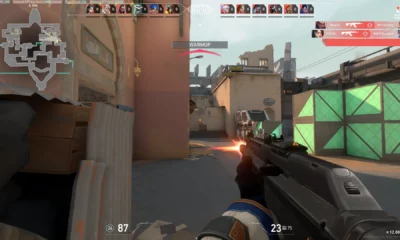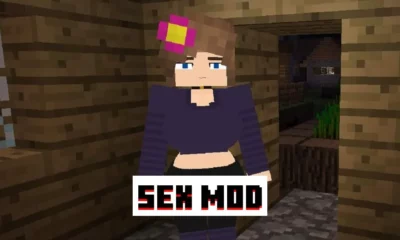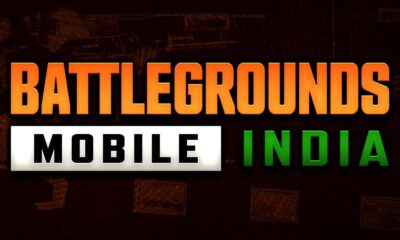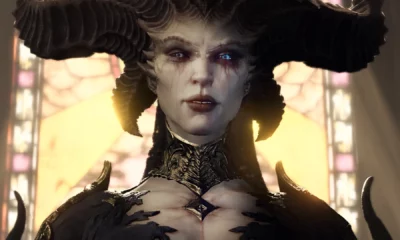Uncategorized
NFT and its awareness for big creators.

Growth of NFT
Over the last year, non-fungible tokens (NFTs) have grown in popularity. Their rapid expansion can largely be due to their uniqueness. The NFT ledger, which is based on the blockchain, offers a significant increase in the tracing of originality and reliability of important things such as food. Nonfungible tokens, or NFTs as they’re known, are indestructible and one-of-a-kind tokens that live on the blockchain. They can be used to represent unique digital assets or digital reproductions of physical things because they are unique and indestructible. Even in the world of games, there are collectibles and some entities that may be classified as one-of-a-kind. With the introduction of blockchain gaming, they became easily transferrable and were free of all the drawbacks of monopoly. However, with the addition of NFT, uniqueness has been established as well. This increases the value of the game in the six and develops a trade ecology within the gaming world.
NFT and Gaming
The crypto and video gaming worlds are rapidly blending. A new era of gaming experiences with real economies and new player motivations could emerge as a result of the blending. As a result, existing business models in the game industry may be fundamentally disrupted. The blockchain gaming sector is one of the fastest-growing segments in the game industry, with no indications of slowing down. NFT games, which evolved from Play to Earn games to collectible games based on the Pay to Earn principle, were released in the first quarter of 2021, giving crypto gaming a boost. The gaming industry has always been driven by trends, and the current trend in NFTs is no exception. While it is no secret that the NFT market has grown to be a multibillion-dollar industry, games are without a doubt one of the most well-suited applications for NFTs. Much of the NFT industry is currently centered on gaming, which has a lot of potential for offering gamers unique in-game item collection opportunities.
It is critical to comprehend the key distinctions between crypto and non-crypto gaming at this time. Spending crypto money to earn and transact with other players is at the heart of cryptocurrency gaming. NFT gaming is a more comprehensive approach that focuses on developing and collecting new gaming assets that may be used in the game for extraordinary actions and powers. The world of gaming has been rocked by the NFT gaming platforms. They’ve demonstrated what NFT for games may entail to the rest of the globe, and they’ve inspired a slew of businesses to get involved in NFT game production.
NFT games aren’t the same as simply keeping crypto-collectibles in your wallet. NFTs will be used in the regulations, procedures, and user interactions of an NFT game. As an example, a game could use an NFT to reflect your distinct character or avatar. NFTs can also be found in digital things found while playing the game. You can then exchange or trade your NFTs for a profit with other gamers. In NFT gaming, native tokens are used to generate or accumulate NFTs, whereas crypto gaming focuses on using crypto coins to trade with other players. Any assets in the game, such as utility, armor, land, or any other asset, can become NFT and be easily owned, transferred, and sold on the blockchain using NFT gaming. The NFT gaming platform also allows players to buy and trade unequaled NFTs on NFT markets. Axie Infinity is a popular online video game based on NFTs that is now the most expensive collection of NFTs.

Unlike non-fungible tokens, fungible tokens can be replicated and exchanged with the same value for one another. Additionally, GameFi (Game Finance), a new sort of blockchain gaming that mixes decentralized finance (DeFi) elements with gaming, is gaining momentum. One such game is MOBOX, a BSC-based game that combines NFT collectibles with yield farming and other DeFi services. Players can use their in-game assets as collateral for loans or just borrow an asset for in-game activity in order to get more assets. There are numerous inventive ways to make money. FTs are gaining popularity in the crypto sector, despite the fact that most games are now constructed around NFTs.
People are starting to sense the wider picture at this time. NFTs are a powerful new technology that can be utilized to make video games more personal, adaptable, and even profitable for the typical gamer. It’s far too early to speculate on all the numerous ways this could affect the game business, but the potential is clear. When Cryptokitties first began, the crypto community was ecstatic about the prospect of new gaming formats, but it was admittedly a little early. Things have changed in 2021, and the stage has been set for NFT games to actually make an impression in the business and in the minds of gamers. Now developers must demonstrate what they can accomplish with it to the rest of the world.
Legal aspects
Many gamers are still unfamiliar with NFTs, and the user experience of acquiring cryptocurrencies, opening a wallet, and dealing with NFTs is now frightening. This is a problem that affects the entire industry. NFT creation, distribution, ownership, and trading are all novel activities that create a slew of legal questions, many of which are unclear or unsettled. Some of the more common legal complications that anyone involved in the minting, sale, or acquisition of an NFT should be aware of are discussed below.
Copyright
A widespread misunderstanding is that when you purchase an NFT, you are also purchasing the rights on the digital artwork. This isn’t the case at all. There is no automatic copyright acquisition. NFT holders’ rights are mainly limited to owning, selling, lending, or transferring the NFT itself, depending on the rules of the marketplace where you made your purchase. Each marketplace, and even each particular product, may have its own set of terms, which should always be double-checked before a sale to ensure that the buyer understands exactly what they’re getting.
When contemplating the possibility of fraudulent activity, the issue of NFT copyright tracking becomes considerably more complicated. NFTs must be signed by the uploader in a process known as minting before they can be uploaded to the blockchain. This element, like a painter’s signature on a painting, is meant to connect the NFT to its author. When minters lie about their identities, as is frequent on many NFT platforms, things might go wrong.
The absence of a firm legal structure in the NFT industry is the root cause of the problem. On some platforms, you can mint anything without being the originator. As a result, several creators have reported having their work stolen and sold in NFT format without their permission. Given the numerous unknown factors, a buyer should be wise enough to do thorough due diligence. One would like to make sure that the seller is the original creator of the work, that they have solid title to it, and that any third parties whose IP is present in the digital work have given their consent. Any platform’s conditions should be reviewed to ensure that it is apparent what is actually accessible to purchase. Equally important, it is always necessary to conduct due diligence to ensure that both the artist and the platform where the digital content is hosted are trustworthy. The digital artwork that is associated with the NFT could be hosted on a third-party website’s servers and not be protected on the blockchain. This implies that if the site were to go down for any reason, the NFT would be linked to nothing and, as a result, would become ineffective and obsolete.
Smart contracts

NFT sales are governed by smart contracts. These are digital contracts in which the agreement’s terms are written in code and incorporated in the purchase tokens. When a pre-defined set of conditions is met, SMART contracts are often programmed to run automatically. When the NFT is resold, the SMART contract’s code might generate royalty payments to the creator automatically. The code is irrevocably produced as a token on the blockchain, which means it can’t be replaced, destroyed, or changed.
The programmable nature of SMART contracts decreases the level of trust necessary between parties to the contract because the contractual requirements are carried out automatically in response to a prompting event, such as payment. Because smart contracts’ contractual duties are fulfilled automatically, there should be minimal legal conflicts about the contract’s terms and execution in theory. SMART contracts, on the other hand, have virtually no case law, legislation, or regulation.
A SMART contract ought to be legally binding if the terms are explicitly clear, both parties wish to be legally bound, and both parties have provided consideration. What may make things more complicated is that SMART contracts will usually work in combination with the applicable marketplace’s text-based terms and conditions. This creates the potential for ambiguity and doubts if the two don’t match up in some way.
Taxation
The issue of taxation is also another area where the law has not yet kept up with the rise in popularity of NFTs.The tax status of NFTs should, in most cases, be determined by the type of the underlying asset. For income tax and Goods and Services Tax (GST) purposes, a digital art NFT, for example, could be considered an intangible asset or good. Taxes can be declared and paid in a timely manner.
However, because of the cross-border and digital character of NFT transactions, new tax difficulties are likely to arise. For example, sales of NFTs by offshore sellers to Indian purchasers through an offshore NFT marketplace might be subject to a 2% balancing fee on the gross value of the NFT and the marketplace’s income from Indian customers. Furthermore, the equalization levy may be waived for NFTs sold by Indian residents through a foreign platform. However, it is debatable if the platform’s income or commission is also eliminated in such a circumstance. One example of a taxable transaction in gaming is while selling a digital creature on Axie Infinity. If NFT is converted to a cryptocurrency before being cashed out, it is treated as two independent investments. Even seemingly insignificant in-game item transfers can result in tax consequences.
Because of the seemingly unstoppable and rapid growth of NFTs in recent months, the law has not yet caught up with the phenomena. The legal uncertainty around so many elements of buying and selling digital artworks via NFTs extends to other areas of law as well, including data protection and privacy law. It may only be a matter of time before NFTs and digital art become the subject of legal challenges. It remains to be seen whether NFTs will establish themselves as a valid art form or whether they are merely a fad. In any case, the commercialization and ownership of digital art and NFTs will continue to be complicated legal concerns.
Future
While there are still some unresolved issues affecting some NFT implementations, there is undoubtedly a surge in interest in the technology that is difficult to ignore. NFTs provide opportunities for issuers, acquirers, and investors in a variety of industries. Their ability to produce and maintain revenue streams is especially appealing in the context of gaming where brand power drives value. However, with these advantages comes a greater need for firms to act cautiously in order to prevent unforeseen regulatory consequences and preserve their commercial interests. The concept of NFTs was and continues to be deep. Technology should enable creators to have more control over their work, to sell it more quickly, and to safeguard it more effectively from unauthorized use. By designing technology expressly for creators, and for regulatory organizations and governments will have to move rapidly, we can avoid it becoming yet another technique of abusing creative professionals.
written by: Shireen














